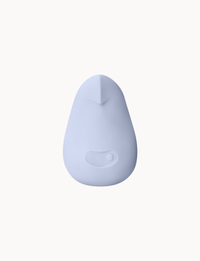Are we spending more time reaching for our phones than each other?
Greenfield says when you look at the disturbing length of time people spend on screens, how could it not impact real-time interactions, relationships, and sexual connections? Millennials and Gen Z are having less sex than ever before—Greenfield attributes this to more time spent on the screen instead of in the sheets. Dr. Thomas Lucking, Ph.D., LMFT, Director of Silicon Valley Therapy, says, “digital distraction is the most common problem for intimacy.” A survey found 1 in 4 people would rather watch Netflix than have sex. The fertility rate dropped over the pandemic, even though couples were often spending more time at home together. “Phubbing,” a colloquial term for when someone starts to scroll when you’re mid-conversation, has detrimental effects on relational satisfaction and mental health.'Intimacy requires presence and digital distraction takes our brains elsewhere,' said Lucking.Think about the message it sends to a partner to check your phone during sex, while they tell you about their day, or while you’re out to dinner. “Somehow or another, what's on that phone, is equally important or more important than them,” Greenfield explained.
Your brain on screen time
Here’s the thing—it’s not your fault. There’s a scientific reason why you can’t stop checking your phone, and that reason is located in the brain, but there is a way to stop it. “This is an addiction. And the brain is responding to all this stimuli and is creating these pathways that are wired to want the behavior over and over again because it is so satisfying,” says Greenfield. He explains excessive screen time activates the same reward pathways in the brain that all addictions activate. So, why are we reaching for our phones so much? Greenfield says when you see your phone light up with a notification, your brain gets an anticipatory hit of dopamine at the pleasurable piece of information you might find when you pick it up. Studies also show that screen time can cause grey matter in the brain to atrophy. What do a reduction in grey matter and dopamine have to do with sex? Lucking explains, “Grey matter is essential to healthy human functioning. The grey matter in the cerebral cortex is involved in personality, intelligence, language processing, and executive functioning.” Too much screen time, Lucking says, can reduce grey matter and dopamine in your brain, which impedes our ability to participate in a healthy intimate relationship.How to limit screen time and increase intimacy
The internet knows no bounds, which you’ve likely realized when scrolling and scrolling and then thinking to yourself, how did I get here? What time is it? (Don’t worry, your phone will tell you.) There is an ideal number to start with when managing your time on devices: no more than two hours of recreational screen time per day on screens. A study found that teens who spent less time on the screen each day displayed higher happiness levels. It might sound easier than it is to decrease screen time. If you’ve ever set limits on apps and continued to press the “remind me in 15 minutes” option, you likely understand why. To increase intimacy or its possibility, make the bedroom a no-phone zone. If you leave devices facing up on the nightstand? You’ll likely be tempted to peek at that notification. Greenfield notes you can also change your screen color to black and white, which will make your phone 30 to 40% less appealing to view. Beyond limiting screen time, another crucial piece of not looking at your phone is rebuilding boredom tolerance. We often look to our phones as an antidote to boredom, but boredom can increase creativity and self-reflection. Greenfield notes the second someone is alone, the first thing they do is pick up their phone. To counteract this habitual pattern, try tolerating boredom when you typically pull your phone out, like waiting in line at the grocery store or while walking your dog.You might also ask yourself, why am I pulling out my phone right now? What am I needing or hoping for? The answer to those questions is likely not located within a handheld rectangle of blue light.Becoming more intentional about screen time can help increase intimacy. Having conversations with partners about priorities can also help steer you back to shared values and deepen emotional closeness. “Values drive behavior so having those conversations about values with your partner is the beginning of increasing intimacy,” said Lucking. Greenfield suggests asking yourself, “what is the cost of constantly checking your phone?” That cost might mean missing connections and hindering relationships. Whether intimacy is physical or emotional, making the space for it is invaluable. And it’s something we can’t get back from time lost to screens. When constantly on call to whatever may come through our devices, we miss what’s happening right in front of us.




















































